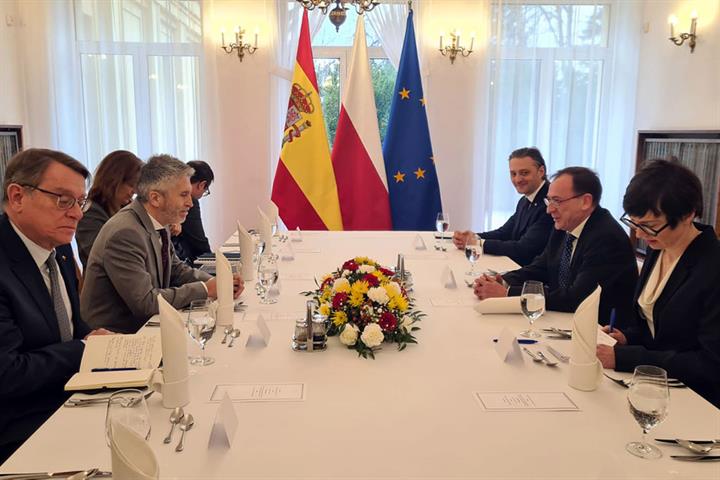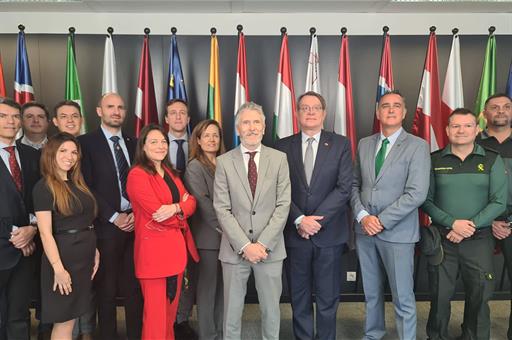Grande-Marlaska calls on Frontex to boost cooperation with African countries to prevent irregular immigration
News - 2023.3.3
"Spain's experience shows that the best way to tackle this phenomenon is to work with our partners on prevention in the countries of origin and transit of irregular flows, in a cooperative way based on mutual trust and sustained over time", explained the minister during his meeting with Leijtens.
Grande-Marlaska stressed that "the notable reduction in the number of arrivals in Spain is evidence that this is the right approach", referring to the 56.9% in irregular arrivals recorded this year, which is in addition to the 25.6% reduction that closed 2022.
The meeting from the Spanish minister took place during the first high-level visit received by the new executive director of Frontex, who took up his post on Wednesday.
During the meeting, Grande-Marlaska urged Frontex to play "a more relevant role" in the prevention of irregular migratory flows in the Mediterranean and the Atlantic. "External borders are not only national but European, and vis-à-vis the challenges we face, first entry states must be supported politically and operationally," he added.
The minister also underlined that Spain's efforts to combat human trafficking and migrant smuggling networks at source serve "to save the lives of vulnerable people whom these networks do not hesitate to put at serious risk".
Following the meeting with the executive director of Frontex and his team, the minister held a meeting with the Spanish personnel assigned to the European border control agency.
Bilateral meeting with the Polish Minister for Home Affairs
 Bilateral meeting between the Minister for Home Affairs, Fernando Grande-Marlaska and the Polish Minister for Home Affairs and Administration, Mariusz Kaminski
Bilateral meeting between the Minister for Home Affairs, Fernando Grande-Marlaska and the Polish Minister for Home Affairs and Administration, Mariusz Kaminski
Grande-Marlaska also met in Warsaw with the Polish Minister for Home Affairs and Administration, Mariusz Kaminski, to whom he conveyed the Department's priorities for Spain's rotating presidency of the EU, including the need to make progress on the common European migration and asylum policy. The meeting also provided an opportunity for the two ministers to discuss developments in the situation caused by the conflict in Ukraine.
This was Grande-Marlaska's third meeting held as part of the international round of meetings he is undertaking in preparation for the Spanish presidency of the EU. The first meeting was held on 3 February in Rome with the Italian Minister for Home Affairs, Matteo Piantedosi, and the second in Berlin on 9 February with his German counterpart, Nancy Faeser.
During the bilateral meeting, Grande-Marlaska advanced to his counterpart the main axes of the Spanish presidency in the area of home affairs, which in addition to migration policy will focus on the prevention and fight against terrorism, violent radicalisation and organised crime, the strengthening of police cooperation and the exchange of information, and support for Ukraine and the consequences of the Russian invasion.
The fight against cybercrime, especially online child sexual abuse, will also be addressed as a priority, as will the strengthening of EU Civil Protection mechanisms to meet the challenges of climate change.
Non official translation





